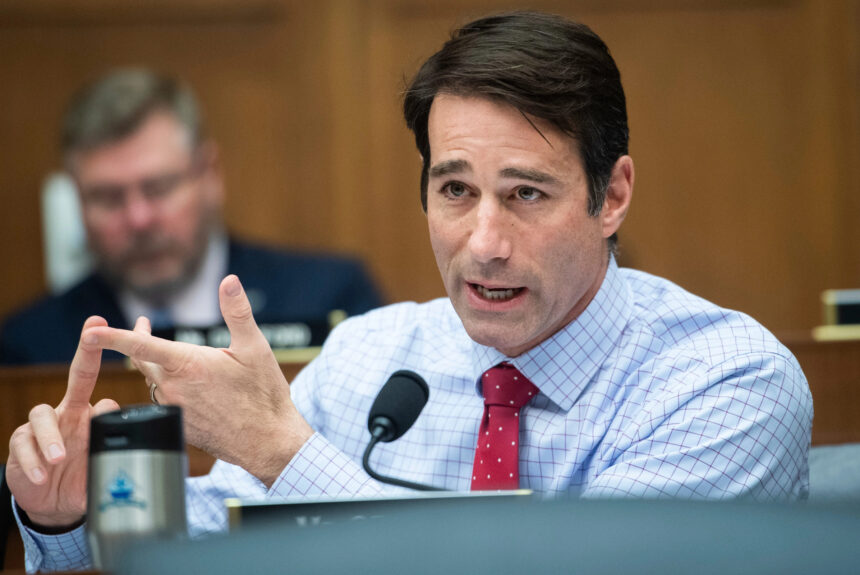With Election Day around the corner, many candidates have begun to outline their platform and explain why they should represent their constituents in Congress. One issue that has begun to generate interest, especially among younger voters, is the topic of climate change and the environment. In past years conservatives have run from this issue, but this year conservatives, with the help of leaders like Rep. Garret Graves (R-LA), are coming to the debate with climate solutions that lower global emissions, accelerate economic growth, and bolster energy security.
An expert on all things related to the environment, Rep. Graves is the Ranking Member of the Climate Select Committee on the Climate Crisis and has led the rollout of the House GOP’s Energy, Climate, and Conservation Task Force. Congressman Graves recently joined John Hart on Right Voices.
Graves, who is now serving his third term, remembers a time when the issue of climate change would have scared many Republicans. Now, as conservative groups and leaders have begun to own the issue, remarkable progress has been made.
>>>READ: Rep. John Curtis Details Rollout of GOP Climate Plan
“We’re in this situation where Republican or conservative solutions have resulted in lower emissions which have resulted in more affordable energy and the U.S. becoming energy independent. When you look at some of the solutions like the Green New Deal, those are the very policies that have resulted in higher emissions, and are the biggest drivers in cost of living and energy unaffordability increases.”
Graves continued:
“Years ago, this was an issue that conservatives would run from. But it’s been amazing just looking back at the strategies that have been most successful in reducing emissions and ensuring the affordability of energy and it’s actually been the very solutions that conservatives have been pushing.”
One solution that conservatives have owned is an “all of the above” energy strategy, which allows the market to pick energy winners and losers. In the case of the United States, market forces initiated the transition from coal to natural gas, allowing America to be the leading emissions reducer in the world since the year 2000.
Germany and most of Europe have followed the exact opposite strategy, empowering the government to mandate what energy sources citizens can rely on. This has hurt economies, and environments and compromised energy security which has ultimately increased costs for consumers. Despite this, many members of the environmental left have aspired to follow Germany’s lead when formulating energy policy, which has led Rep. Graves scratching his head:
“We’re no longer tethered to science and data. Decisions are being made in Europe that are causing higher emissions that are giving more leverage to Russia, making energy absolutely unaffordable, and weakening NATO and other European-allied countries. Looking at how this has played out in these countries, why in the world would we say ‘yeah we want to do that.’ We want to follow what they’ve done in Germany and the U.K. It just doesn’t make sense. So that’s why we’re trying to spend time educating people about the facts, bringing data to the table, demonstrating how projects like the Keystone Pipeline actually result in lower emissions and a safer environment rather than what these rumors and false narratives have said that a pipeline like that is going to be more dangerous.”
One way in which Graves and his colleagues have looked to educate the public is through the rollout of their Energy, Climate, and Conservation Task Force. The Task Force’s legislation is built around the six principles of Unlocking American Resources, Let America Build, American Innovation, Beat China and Russia, Conservation with a Purpose, and Build Resilient Communities.
>>>READ: Conservatives Can Win the Long Game on Permitting Reform
Rep. Graves has already begun to lay the groundwork for a conservative climate agenda, should the GOP win in November. In addition to permitting reform, which Graves said needs to be done “regardless of ideology,” conservatives will take a holistic approach to climate change and look for solutions that reduce emissions globally and drive energy reliability and affordability.
According to Graves, the best way to accomplish this is by “letting innovators innovate. They’re always going to be so much more innovative, so much more creative than the government at achieving these multiple wins. And we’ve got to stop forcing markets to go in directions that they don’t want to go or can’t go.”
As the need for durable, pro-growth climate solutions becomes more clear, the work of Rep. Garret Graves and the Energy, Climate, and Conservation Task Force will be needed to reach our economic and environmental objectives.
The views and opinions expressed are those of the author’s and do not necessarily reflect the official policy or position of C3.
